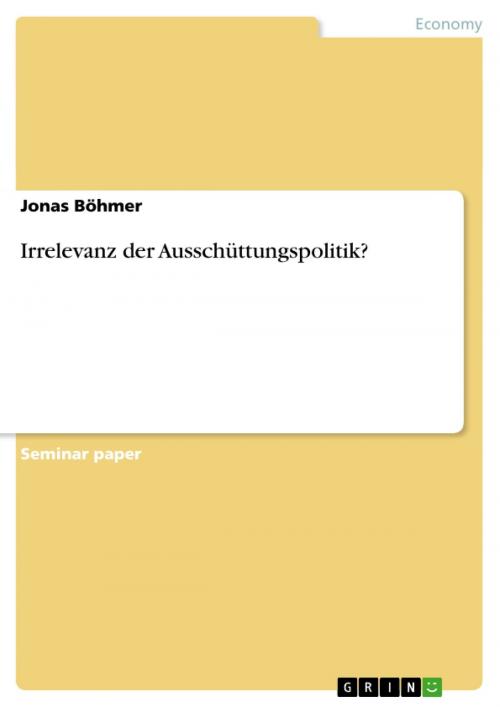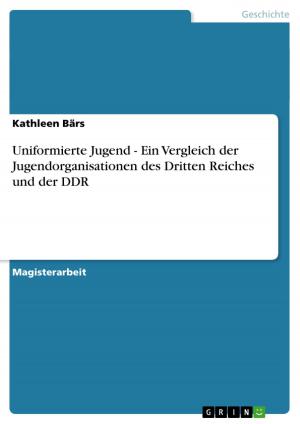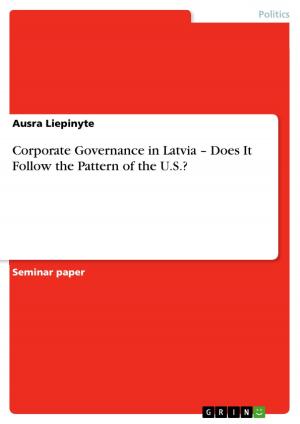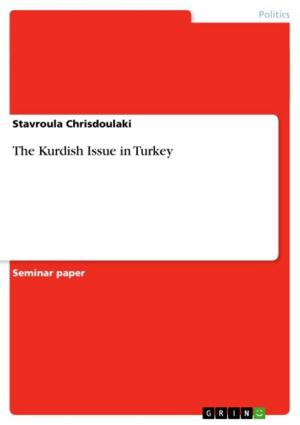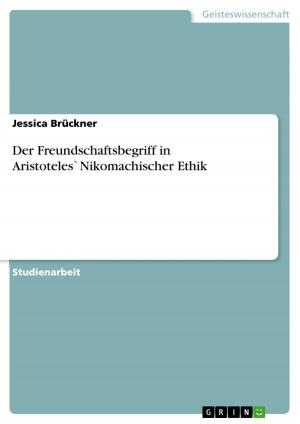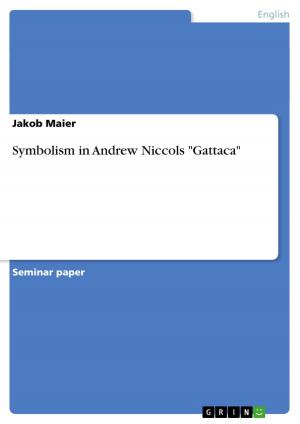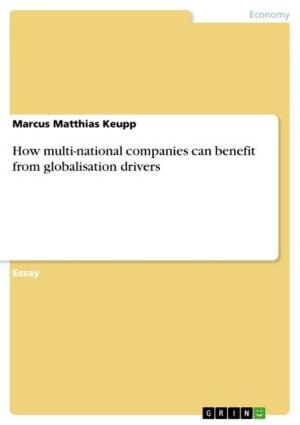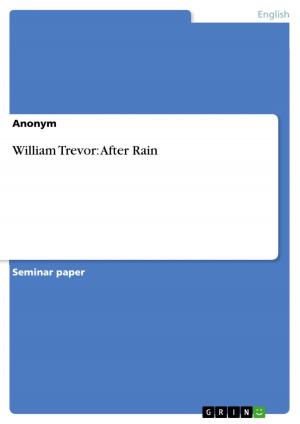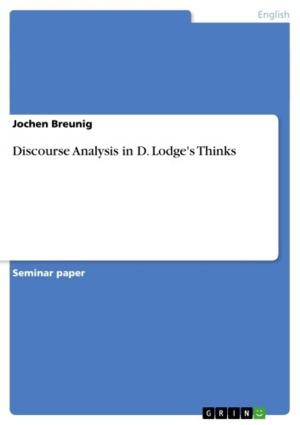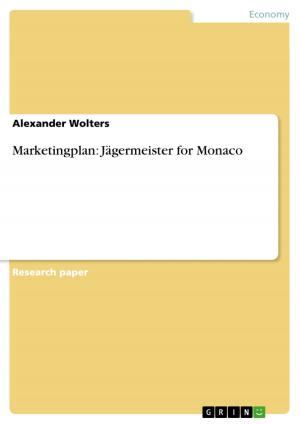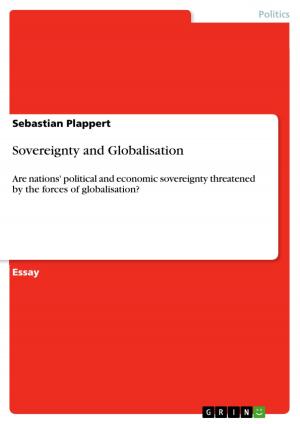Irrelevanz der Ausschüttungspolitik?
Nonfiction, Social & Cultural Studies, Political Science, Politics, Economic Policy| Author: | Jonas Böhmer | ISBN: | 9783640438600 |
| Publisher: | GRIN Publishing | Publication: | October 2, 2009 |
| Imprint: | GRIN Publishing | Language: | English |
| Author: | Jonas Böhmer |
| ISBN: | 9783640438600 |
| Publisher: | GRIN Publishing |
| Publication: | October 2, 2009 |
| Imprint: | GRIN Publishing |
| Language: | English |
Seminar paper from the year 2007 in the subject Business economics - Economic Policy, grade: 2,0, University of Bonn (Betriebswirtschaftliche Abteilung I der Staatswissenschaftlichen Fakultät), course: Seminar zur Ausschüttungspolitik , language: English, abstract: In 1961, Miller and Modigliani (abbreviated MM) contrived that the distribution policy of a company is, under certain circumstances, not able to influence its share value, i.e. that the dividend policy is irrelevant. As long as a company distributes the full present value of its cash flow, it is not relevant how or in which period it does this in detail. Linda and Harry DeAngelo (D&D) on the other hand found that Miller and Modigliani were wrong. They say that the model of MM is unnecessary restrictive. In such a way that it even produces false and warped results. After relaxing some assumptions of MMs model, they get a contrary result. In their opinion payout policy is not irrelevant. They say that when retention is allowed it is very well important and relevant which dividend policy a company chooses. Both points of view got a certain amount of support in the aftermath of their publishing. Prominent authors supporting MM were for example Joseph Stiglitz and Mark Rubinstein, while Myron Gordon and James Walter argued against it. But which is the right position? Is it afterall possible to answer this with certainty? Probably not. Maybe it will last years to get a definite answer; if there will ever be one. None-theless this term paper will try to get some clarity onto that matter. Therefore the expose will start in chapter 2 with a review of Miller and Modigliani's proof of irrelevancy. After this, in chapter 3 there will be a presentation of the contrasting thesis, most recently emphasized by DeAngelo and DeAngelo, who relax the critical assumption of no retention. In chapter 4 there will be a discussion of the consequences for the market participants if retention is allowed, brought forward alongside with its consequences for payout relevancy. This paper will conclude by weighing the most important arguments of both sides. As it will not succeed in letting the scale tip, so gives an outlook on possible extensions of the MM valuation model. This will at least show the angles where both points of view gainsay the reality up to now.
Seminar paper from the year 2007 in the subject Business economics - Economic Policy, grade: 2,0, University of Bonn (Betriebswirtschaftliche Abteilung I der Staatswissenschaftlichen Fakultät), course: Seminar zur Ausschüttungspolitik , language: English, abstract: In 1961, Miller and Modigliani (abbreviated MM) contrived that the distribution policy of a company is, under certain circumstances, not able to influence its share value, i.e. that the dividend policy is irrelevant. As long as a company distributes the full present value of its cash flow, it is not relevant how or in which period it does this in detail. Linda and Harry DeAngelo (D&D) on the other hand found that Miller and Modigliani were wrong. They say that the model of MM is unnecessary restrictive. In such a way that it even produces false and warped results. After relaxing some assumptions of MMs model, they get a contrary result. In their opinion payout policy is not irrelevant. They say that when retention is allowed it is very well important and relevant which dividend policy a company chooses. Both points of view got a certain amount of support in the aftermath of their publishing. Prominent authors supporting MM were for example Joseph Stiglitz and Mark Rubinstein, while Myron Gordon and James Walter argued against it. But which is the right position? Is it afterall possible to answer this with certainty? Probably not. Maybe it will last years to get a definite answer; if there will ever be one. None-theless this term paper will try to get some clarity onto that matter. Therefore the expose will start in chapter 2 with a review of Miller and Modigliani's proof of irrelevancy. After this, in chapter 3 there will be a presentation of the contrasting thesis, most recently emphasized by DeAngelo and DeAngelo, who relax the critical assumption of no retention. In chapter 4 there will be a discussion of the consequences for the market participants if retention is allowed, brought forward alongside with its consequences for payout relevancy. This paper will conclude by weighing the most important arguments of both sides. As it will not succeed in letting the scale tip, so gives an outlook on possible extensions of the MM valuation model. This will at least show the angles where both points of view gainsay the reality up to now.
